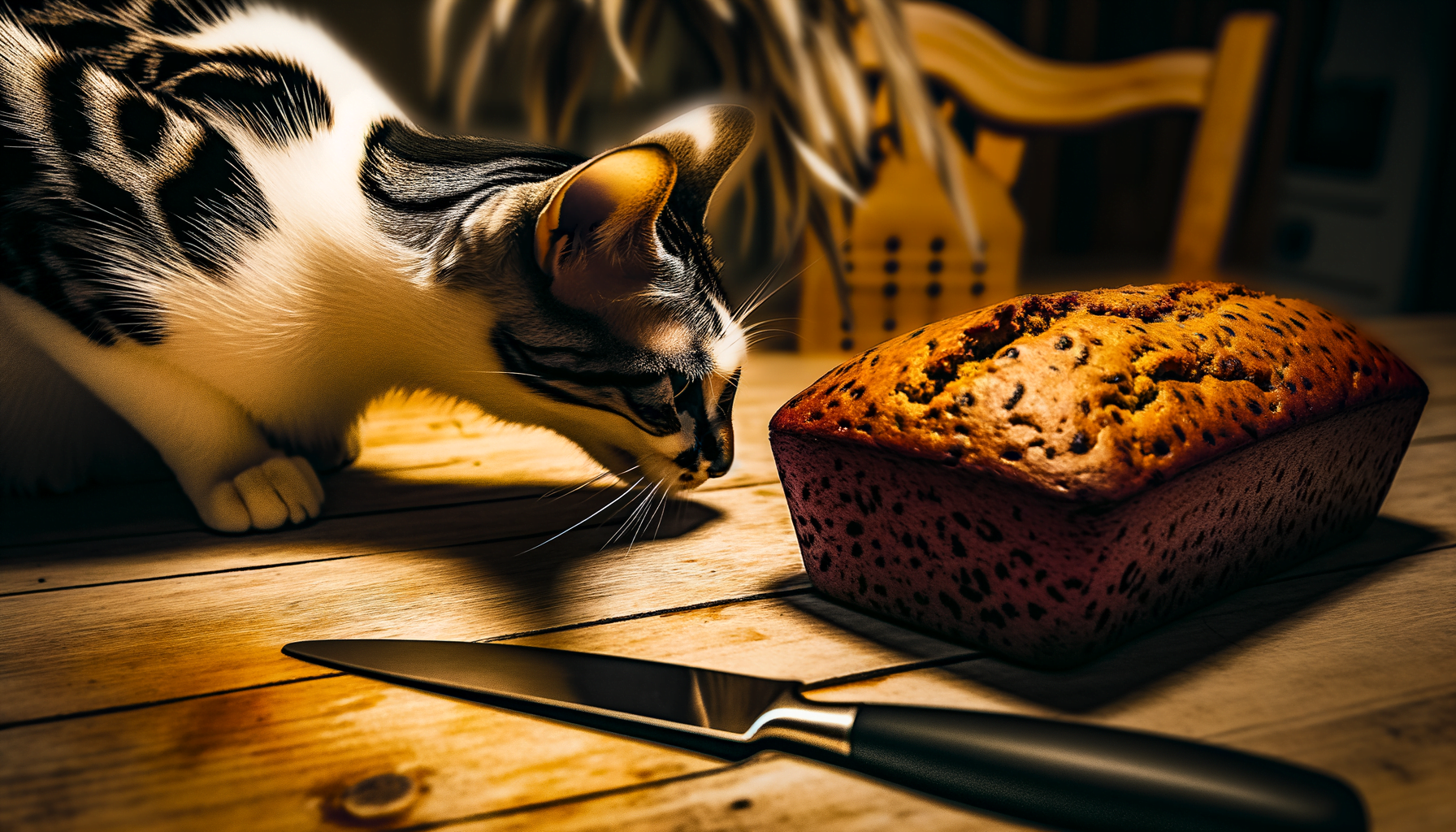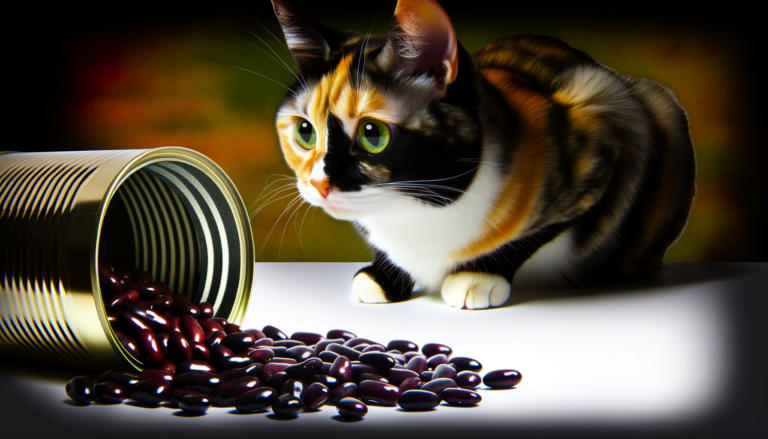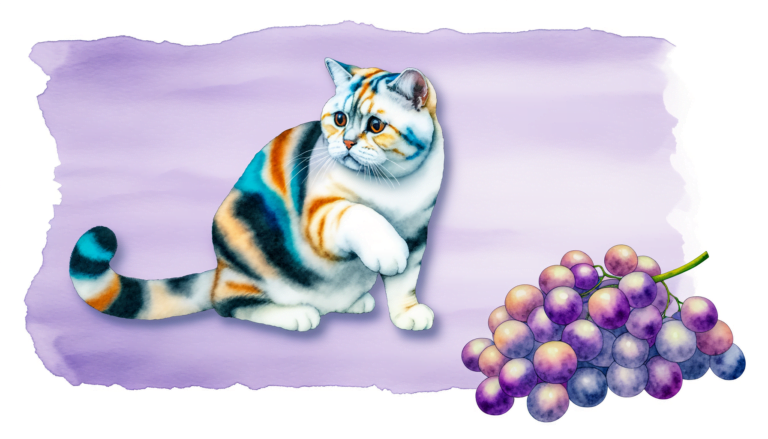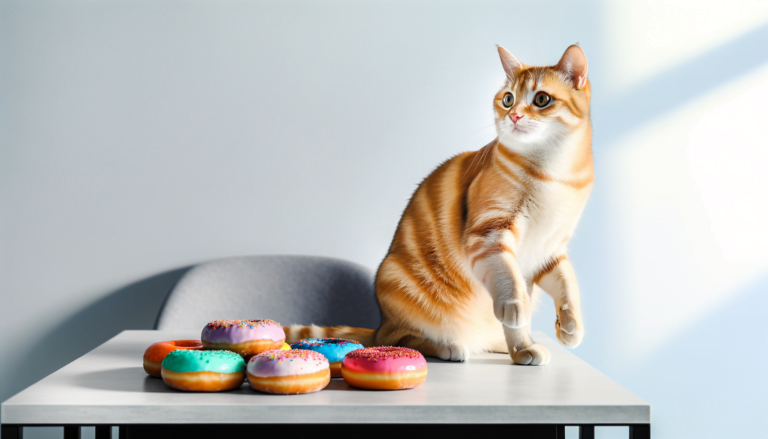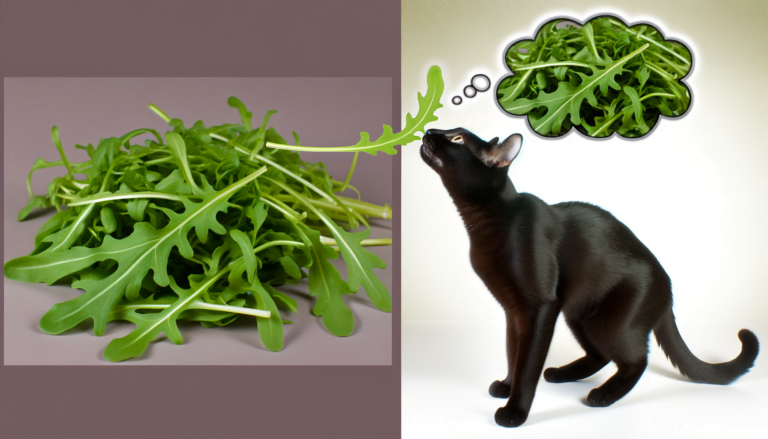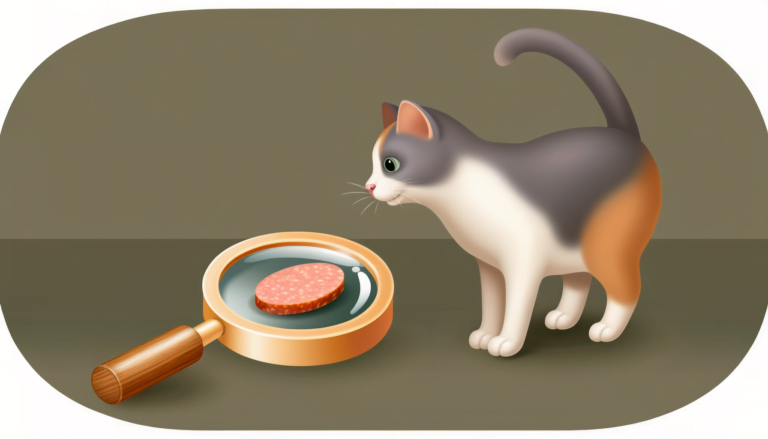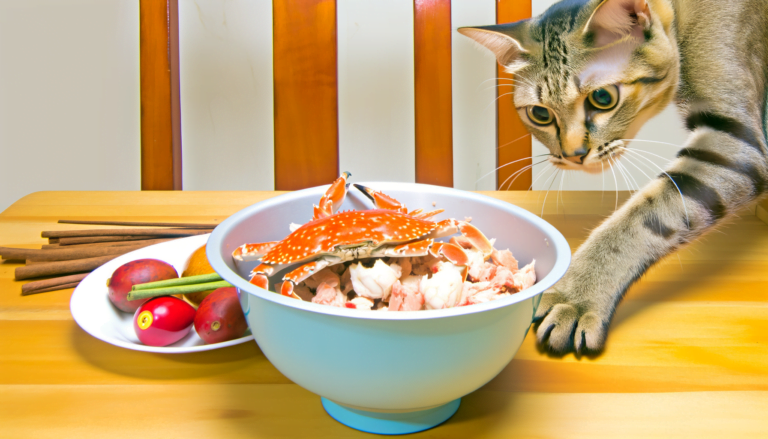Unraveling the Mystery: Can Cats Safely Feast on Banana Bread?
No, cats should not eat banana bread. Although bananas themselves are not harmful to cats in moderation, banana bread often contains other ingredients that could be detrimental to a cat’s health. For instance, many banana bread recipes include large amounts of sugar, which isn’t good for cats. Moreover, if the bread contains chocolate or raisins, it may even be toxic to them. Therefore, it’s best to feed cats food specially formulated for their dietary needs instead of human food.
Alternatives to Banana Bread for Cats
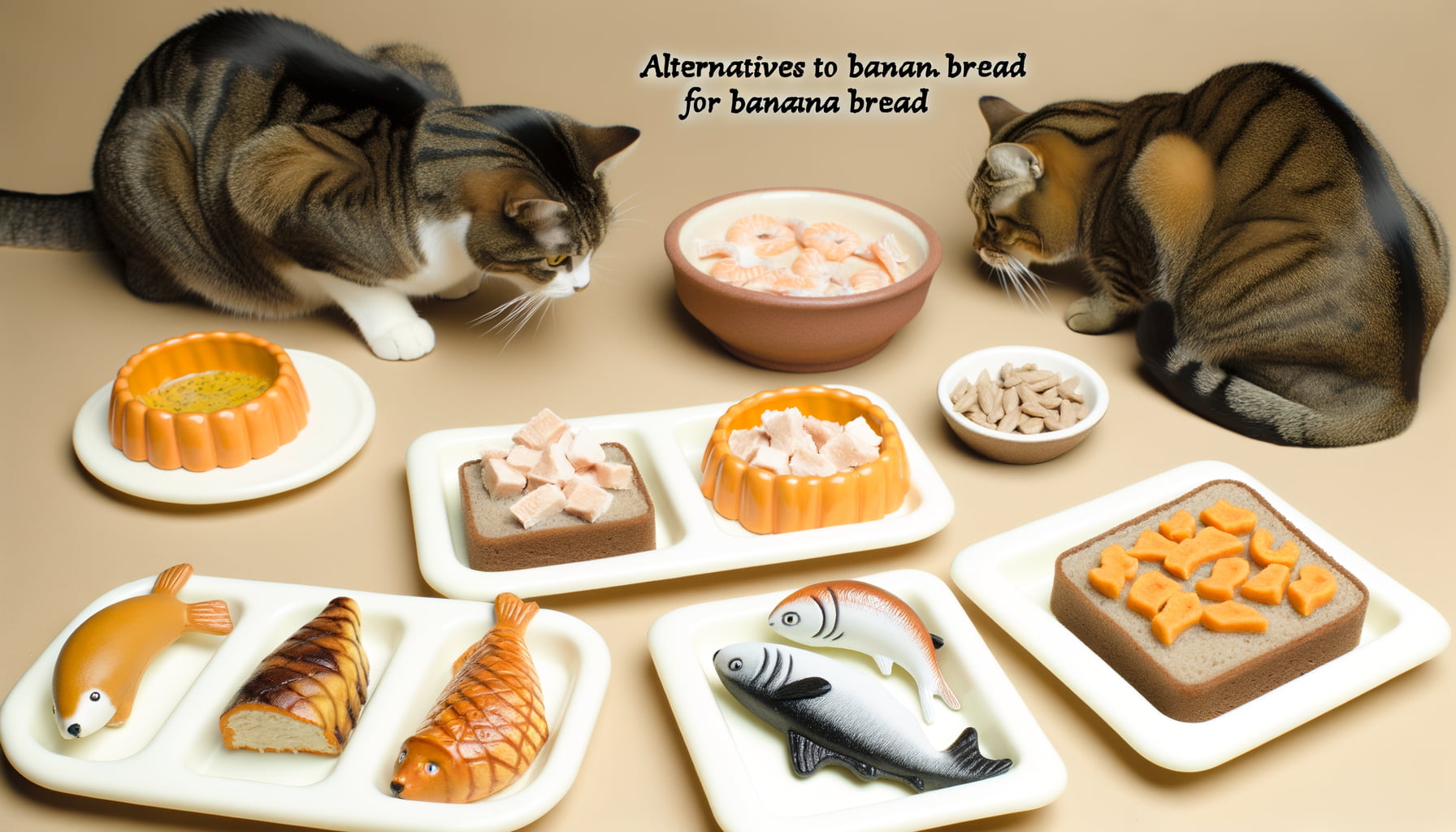
While cats may be curious about the scent of your banana bread, it’s essential to offer them healthier, safer alternatives that align better with their dietary needs. Canned cat food is an excellent option. It is designed to provide the right balance of nutrients that cats require. Many brands offer different flavors, simulating the variety they would experience in the wild.
A special cat treat, every now and then, can spice up your cat’s diet. Many quality products on the market cater to the tastes of cats, including fish-flavored treats and various herbal blends that are both safe and attractive to felines. Always choose treats specially designed for cats, as human food-products can contain elements that are potentially harmful to their health, even in small amounts.
Lastly, a homemade meal can be an alternative to banana bread for cats. Tailor-made meals with chicken, fish, or turkey, supplemented with a few cat-safe vegetables, are not only healthy but also appealing to many cats. Always consult with your vet before changing your cat’s diet to ensure balanced and appropriate nutrition.
Ingredients in Banana Bread: Toxic or Safe for Cats?
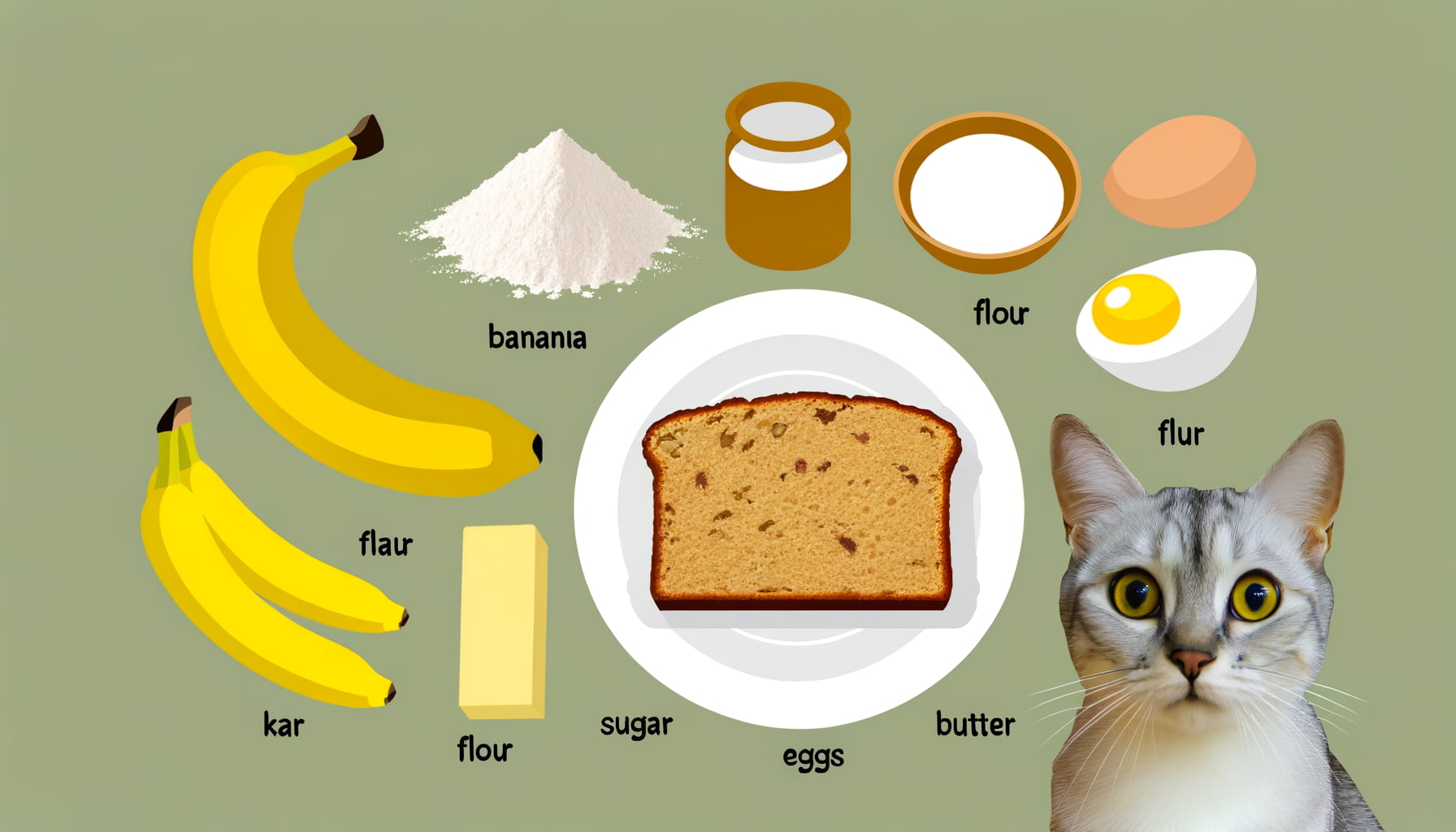
The culinary delights we relish as humans aren’t necessarily beneficial or safe for our feline companions. One such food is banana bread, a popular sweet treat. However, understanding whether the ingredients pose a risk to your cat is pivotal.
The contents of traditional banana bread include bananas, flour, sugar, eggs, and baking powder. The star ingredient banana is non-toxic to cats and can, on occasion, be a healthy addition to their diet, granting them a boost of potassium. The remaining banana bread ingredients, however, have more ambiguous implications.
Flour, sugar, and eggs are not toxic to cats but aren’t healthy either. In specific, refined sugar could provoke issues in the long run like diabetes or obesity. The core concern is the potential essence of chocolate or nuts, which are both harmful to cats. Therefore, while some ingredients in banana bread are safe, others may present harm, emphasizing the importance of discerning component inclusion in feeding any human food to our pets.
Health Implications of Cats Eating Banana Bread
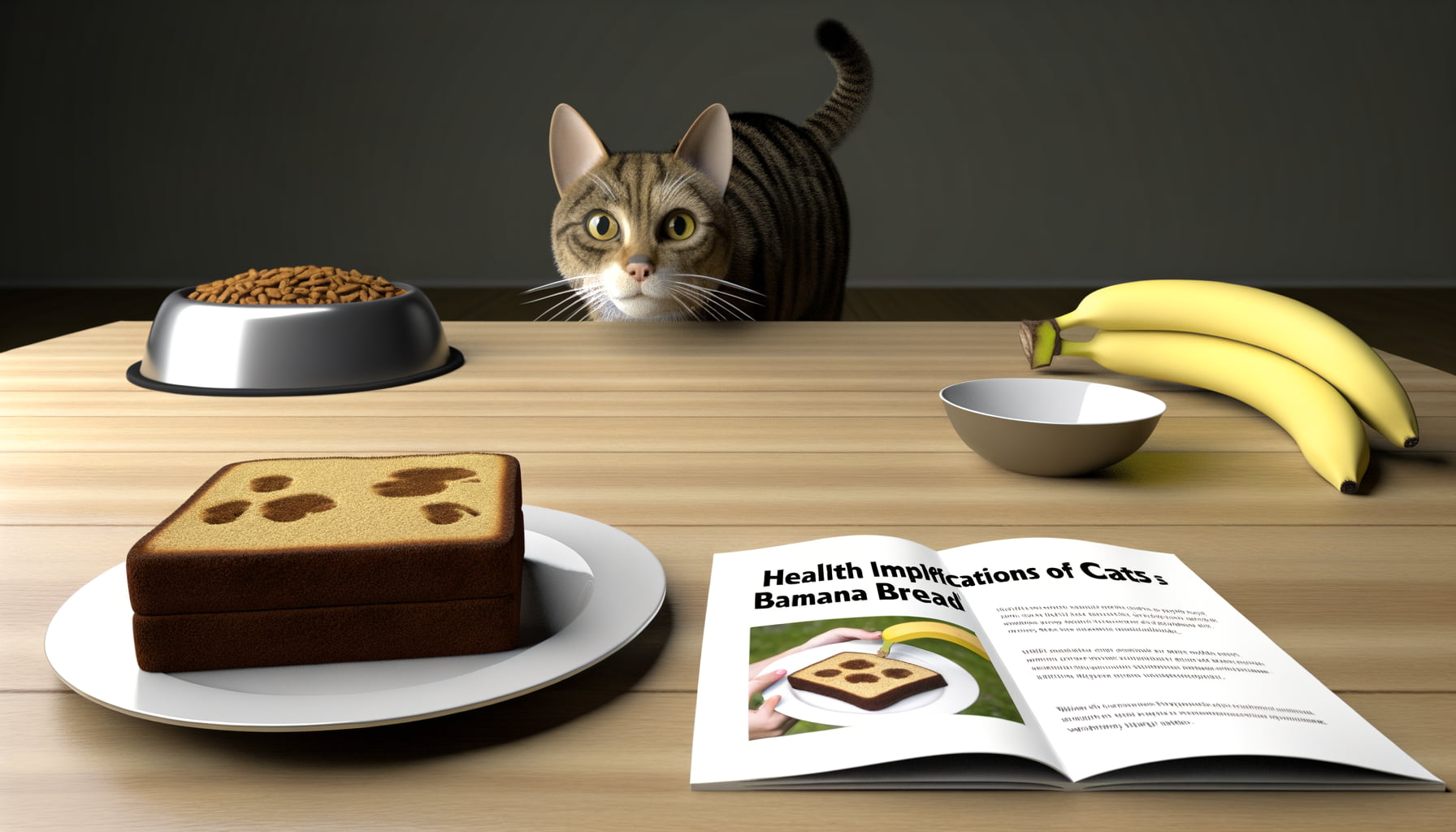
Feasting on banana bread can have health implications for cats. Although bananas themselves do not pose a significant health risk to cats, banana bread typically contains other ingredients, such as processed sugars, that may not be suitable for cats’ metabolism. Cats have evolved to consume a diet primarily of meat, not sweet breads, and as such lack the capability to break down complex carbs and sugars efficiently.
The inclusion of processed sugars in banana bread can result in cats developing health complications. Overconsumption could lead to obesity, diabetes, or dental problems. Furthermore, cats, with their smaller bodies, are sensitive to substances found in various human foods. Hence, the effects of eating banana bread may become apparent quicker in cats than in humans.
Whilst small, occasional nibbles of banana bread are unlikely to cause serious harm, it’s essential to appreciate that banana bread is not designed for feline consumption. The potential health implications underscore the importance of feeding cats a diet specifically formulated for their unique dietary needs.
Understanding a Cat’s Dietary Needs
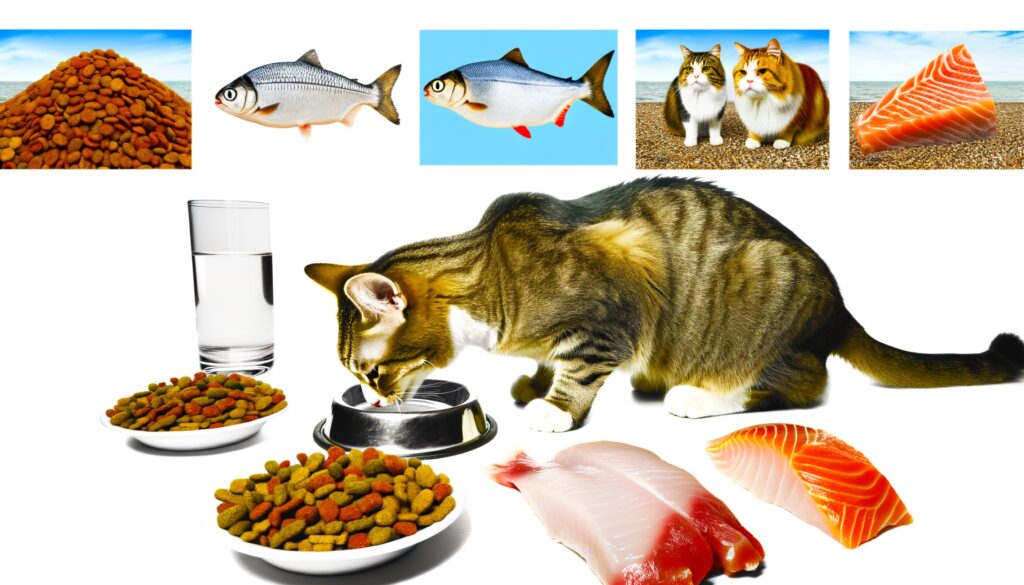
Cats are obligate carnivores, which means their diet should largely consist of meat. They need proteins from meat for a strong heart, healthy reproductive system, and good vision. Unlike human dietary needs, cats require certain vitamins and fatty acids, such as taurine, arginine, and arachidonic acid, available only in animal sources. A cat’s dietary needs are significantly unique and feeding them something other than their natural diet might lead to poor growth and health conditions, such as heart diseases.
The ingestion of carbohydrates, such as those found in a slice of banana bread, is not necessary or beneficial for cats. While the human body can easily digest carbohydrates and convert them into energy, cats lack the specific enzymes needed to process them effectively. They may gain weight and are at risk of developing diabetes, particularly if their diet isn’t balanced with enough protein.
It is essential to understand that cats do not digest plant materials properly. Feeding them fruits, vegetables, or any other bread may not be harmful in small amounts, but they are not designed to process complex carbohydrates or plant proteins. Often, they lack the needed nutrients found in these foods, making it inefficacious for their growth and health. Stick to cat food, which is specifically formulated to meet all their dietary needs.
Conclusion
As the mystery of whether cats can safely indulge in banana bread remains, it is important to consider the ingredients and potential risks involved. While bananas themselves are generally safe for cats in moderation, other components such as sugar, cinnamon, and nuts commonly found in banana bread can be harmful to feline friends. It’s crucial to consult with a veterinarian before allowing your cat to partake in this popular treat to ensure their well-being.
Understanding the complexities of feline dietary needs and the potential risks associated with certain human foods can help pet owners make informed decisions when it comes to offering special treats like banana bread to their beloved cats. By prioritizing the safety and health of our furry companions, we can ensure that they enjoy a happy and healthy lifestyle for years to come.
